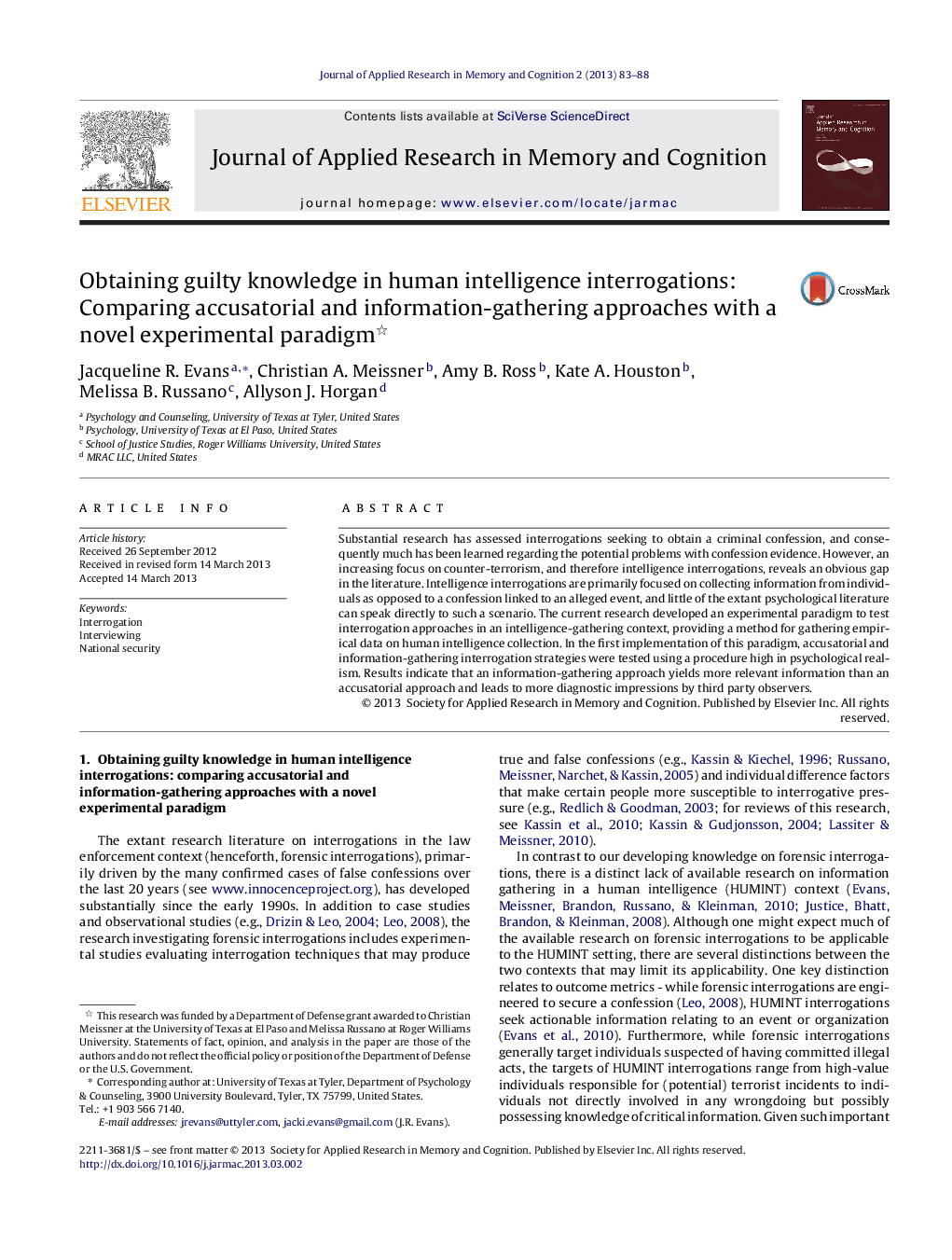| Article ID | Journal | Published Year | Pages | File Type |
|---|---|---|---|---|
| 881639 | Journal of Applied Research in Memory and Cognition | 2013 | 6 Pages |
•We created an experimental paradigm to examine intelligence-gathering interrogations.•We compared information-gathering and accusatorial interrogation approaches.•Participants provided more details in the information-gathering approach condition.•Participants provided more admissions in the information-gathering approach condition.•Information-gathering approaches led to more diagnostic third party judgments.
Substantial research has assessed interrogations seeking to obtain a criminal confession, and consequently much has been learned regarding the potential problems with confession evidence. However, an increasing focus on counter-terrorism, and therefore intelligence interrogations, reveals an obvious gap in the literature. Intelligence interrogations are primarily focused on collecting information from individuals as opposed to a confession linked to an alleged event, and little of the extant psychological literature can speak directly to such a scenario. The current research developed an experimental paradigm to test interrogation approaches in an intelligence-gathering context, providing a method for gathering empirical data on human intelligence collection. In the first implementation of this paradigm, accusatorial and information-gathering interrogation strategies were tested using a procedure high in psychological realism. Results indicate that an information-gathering approach yields more relevant information than an accusatorial approach and leads to more diagnostic impressions by third party observers.
